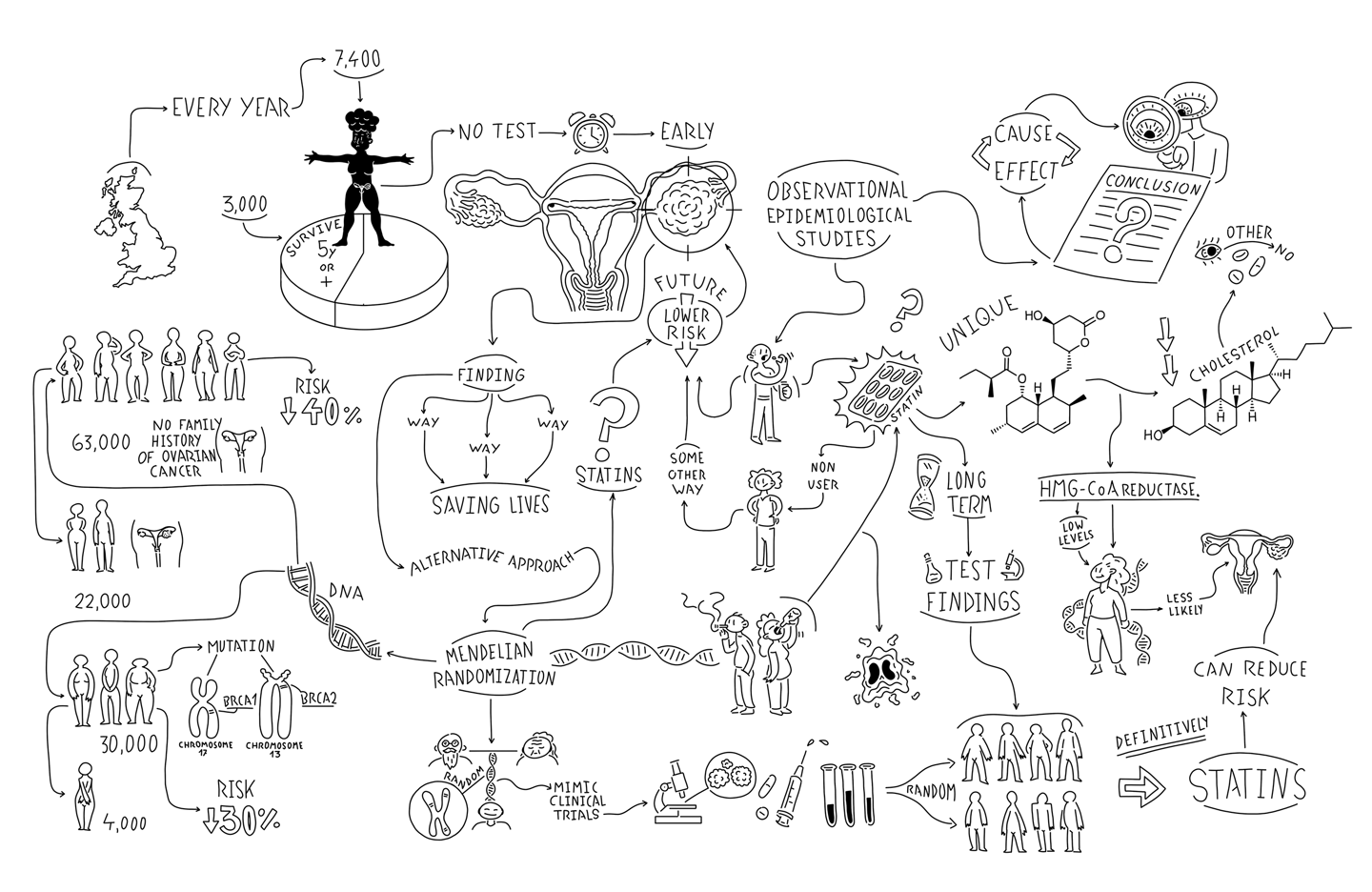Infographics
Community-Driven COVID-19 Vaccine Awareness with AR Technology
This infographic highlights a collaborative campaign in West Philadelphia using Augmented Reality (AR) to engage African American families, aiming to boost pediatric COVID-19 vaccination rates through accessible, culturally resonant materials.
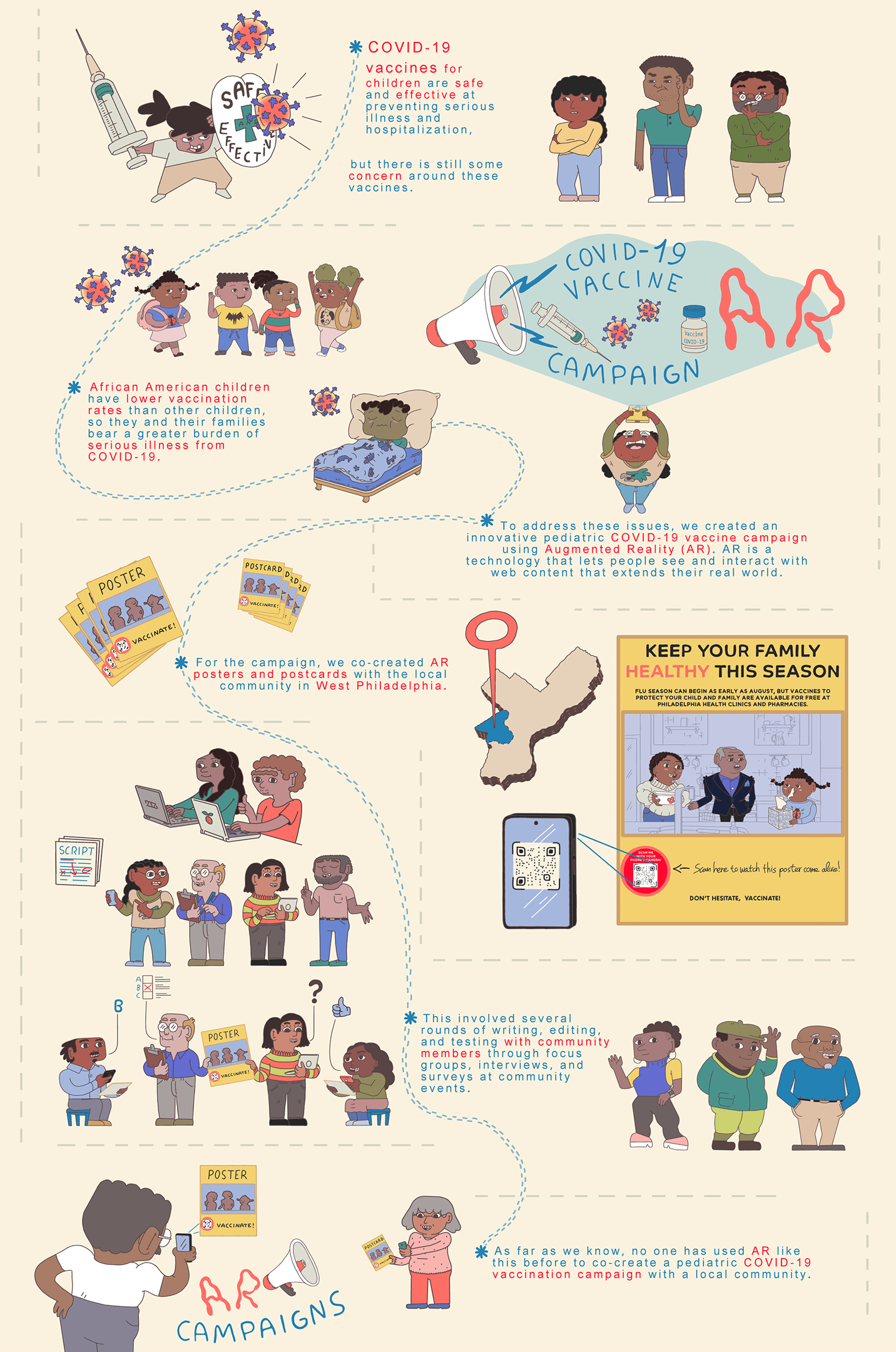

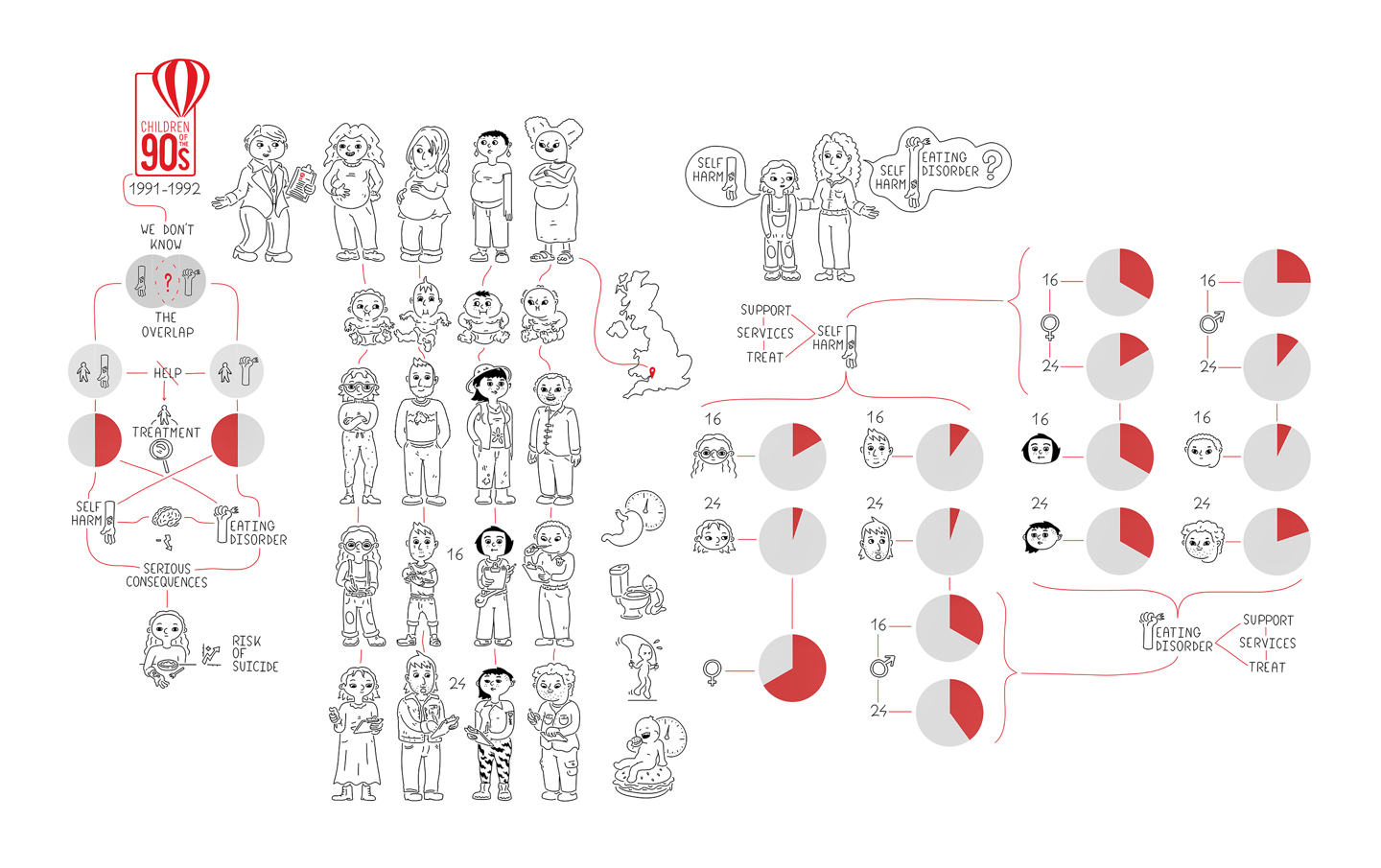

Comorbidity of Eating Disorders and Self-Harm in the Children of the 90s: A UK Study
This infographic explores the overlap between self-harm and eating disorders within the "Children of the 90s" UK cohort study, highlighting how these behaviors manifest differently by age and gender.
Integrating polygenic risk scores with modifiable risk factors improves cancer risk score
Researchers at the International Agency for Research on Cancer and the University of California San Francisco conducted a study to generate evidence that genetic data, in the form of polygenic risk scores, can be used to more accurately identify individuals at high risk of cancer.
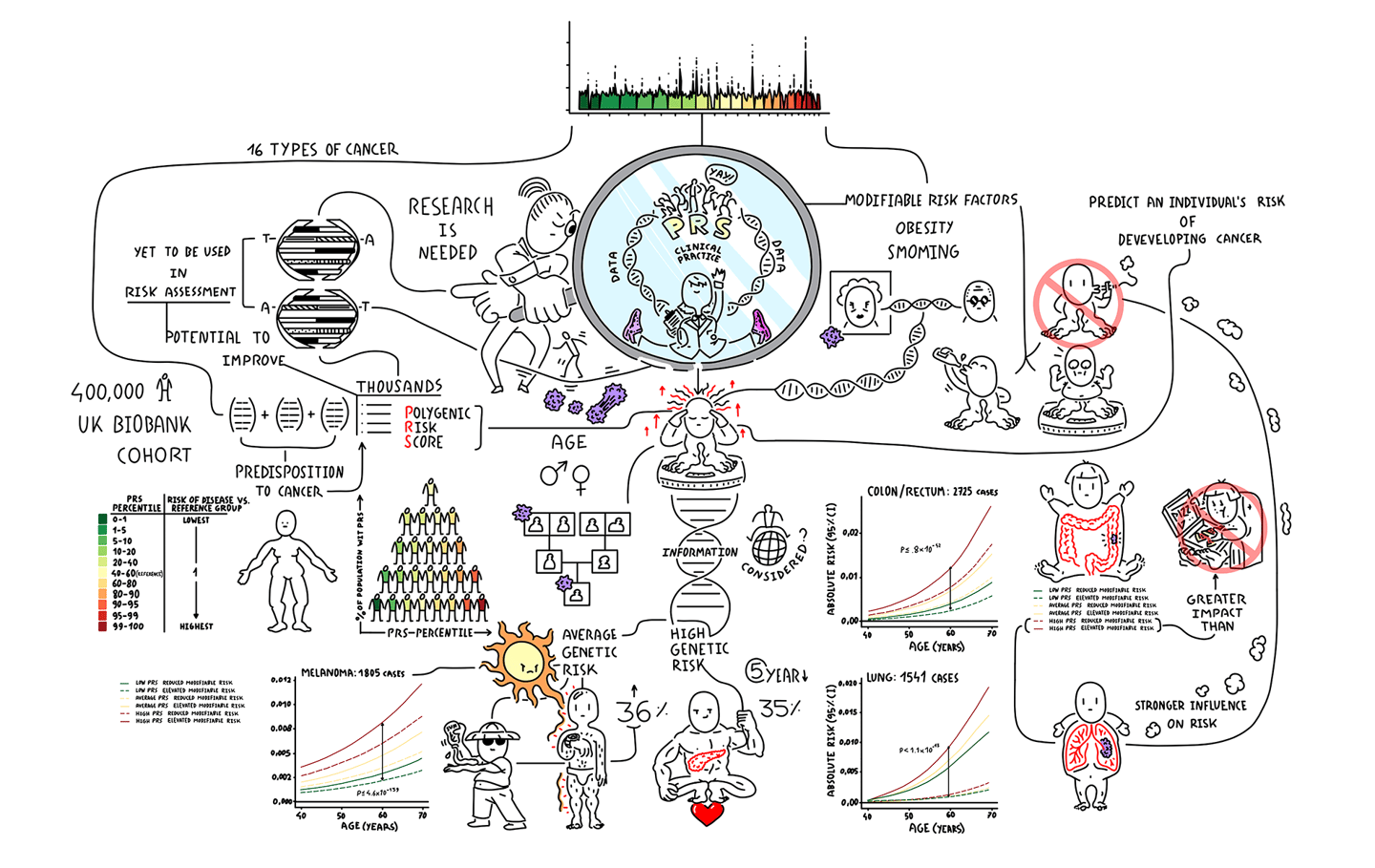

Experiment to assess the effect of exposure to misinformation about e-cigarette harms on Twitter.
Researchers at Bristol Medical School in collaboration with colleagues from the United States, conducted an online randomized controlled experiment to assess the effect of exposure to misinformation about e-cigarette harms found on Twitter.
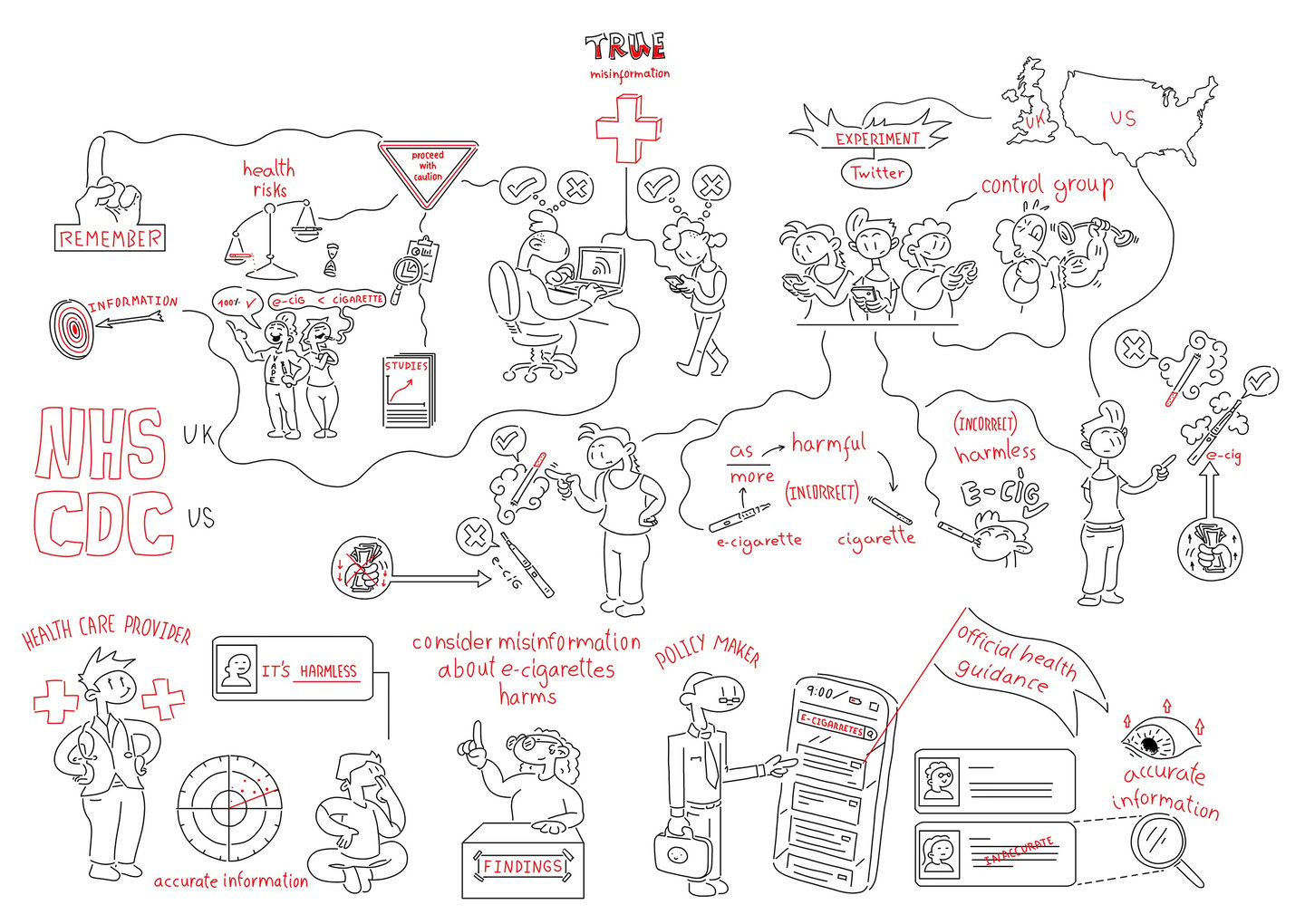

Reducing drug development costs
Researchers in the MRC Integrative Epidemiology Unit at the University of Bristol have developed an innovative pipeline for generating evidence that can be used for drug target identification and repurposing.
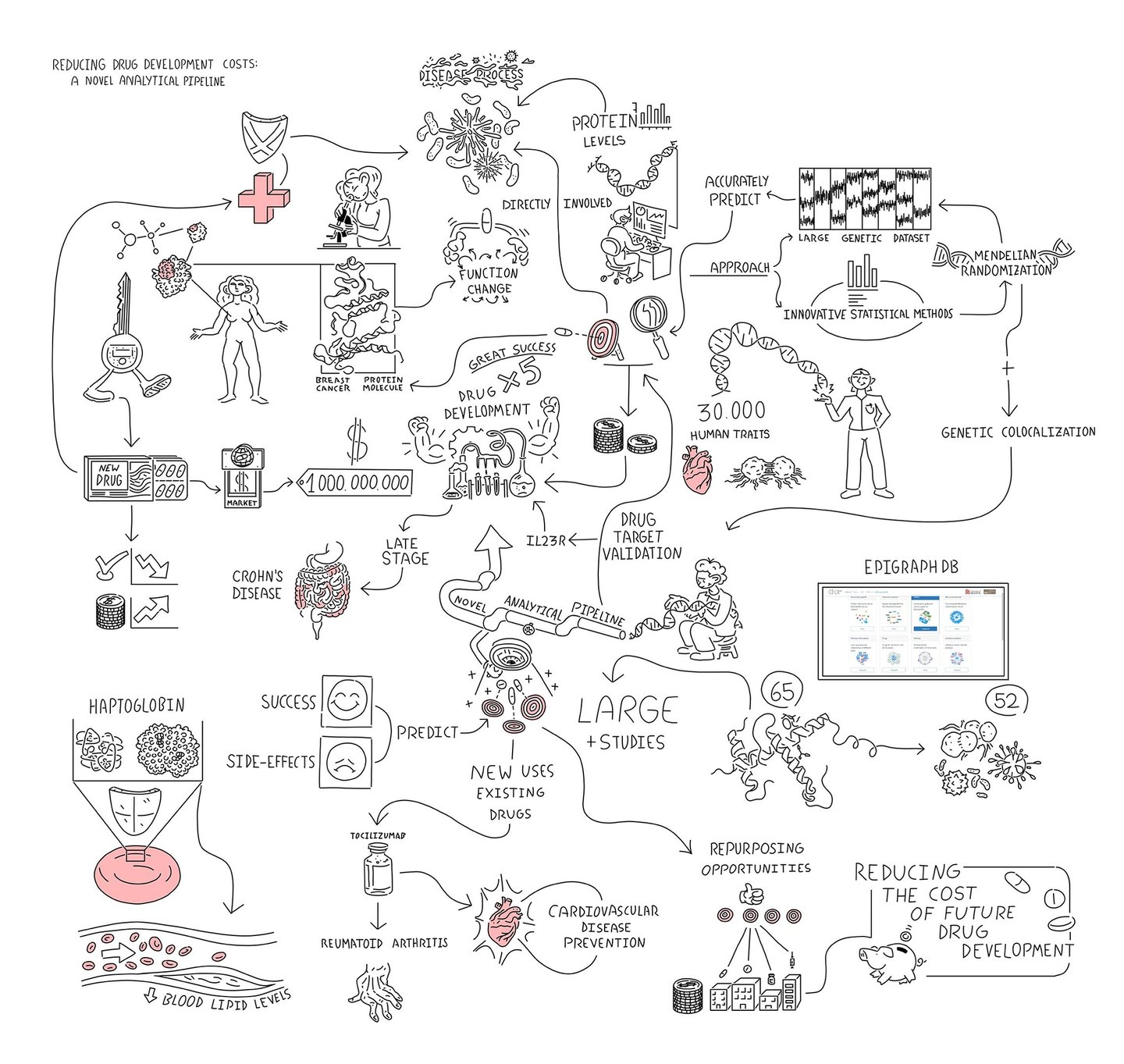

Triangulation of evidence
How scientists combine multiple streams of evidence in order to increase confidence in their findings. https://www.nature.com/articles/d41586-018-01023-3
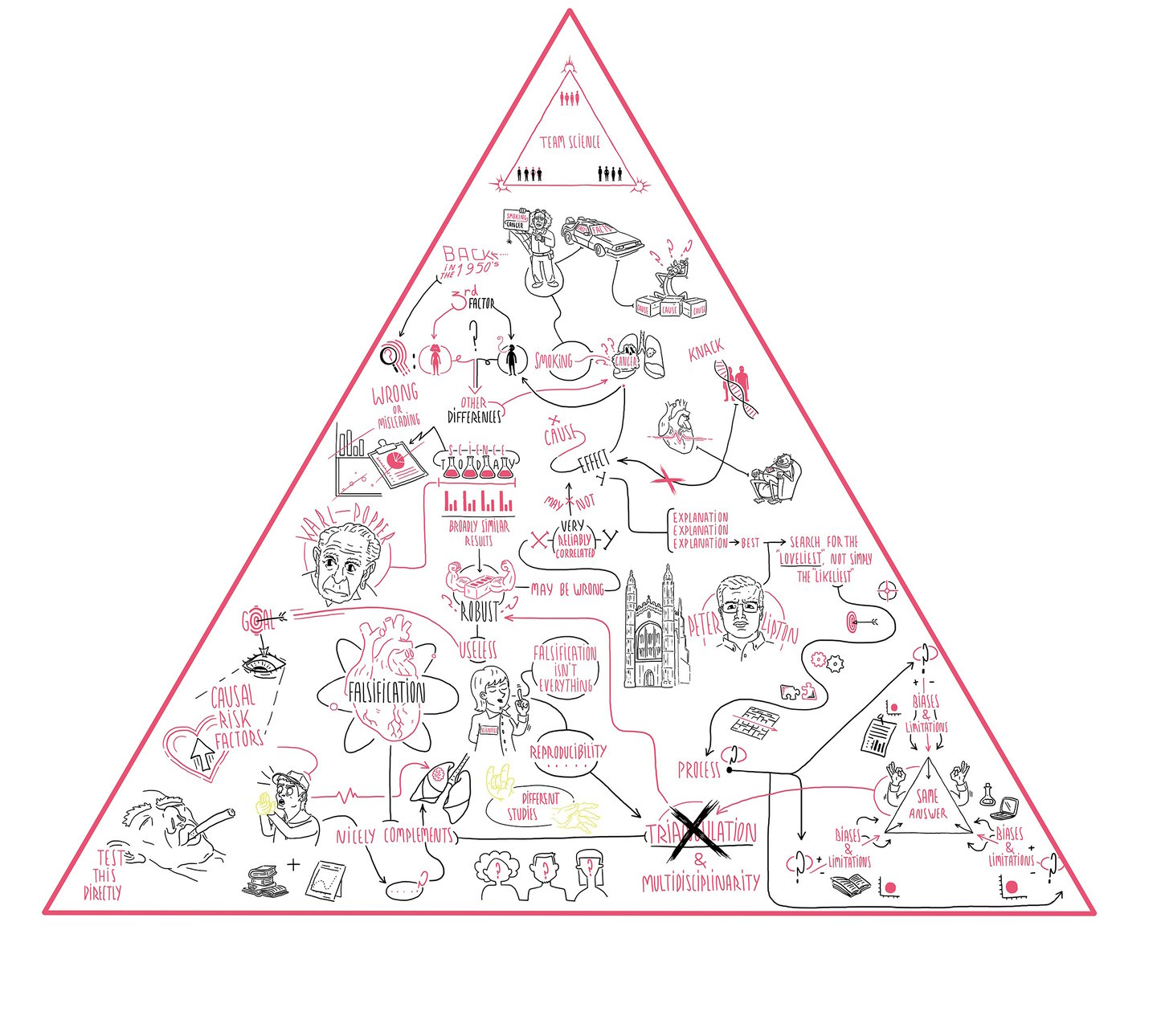

Data Sharing
the open research practice of sharing data, and why it is important. It is part of a series of materials developed by the UK Reproducibility Network on various open research practices. Visit ukrn.org/primers to learn more about how to incorporate open research practices into your workflow.
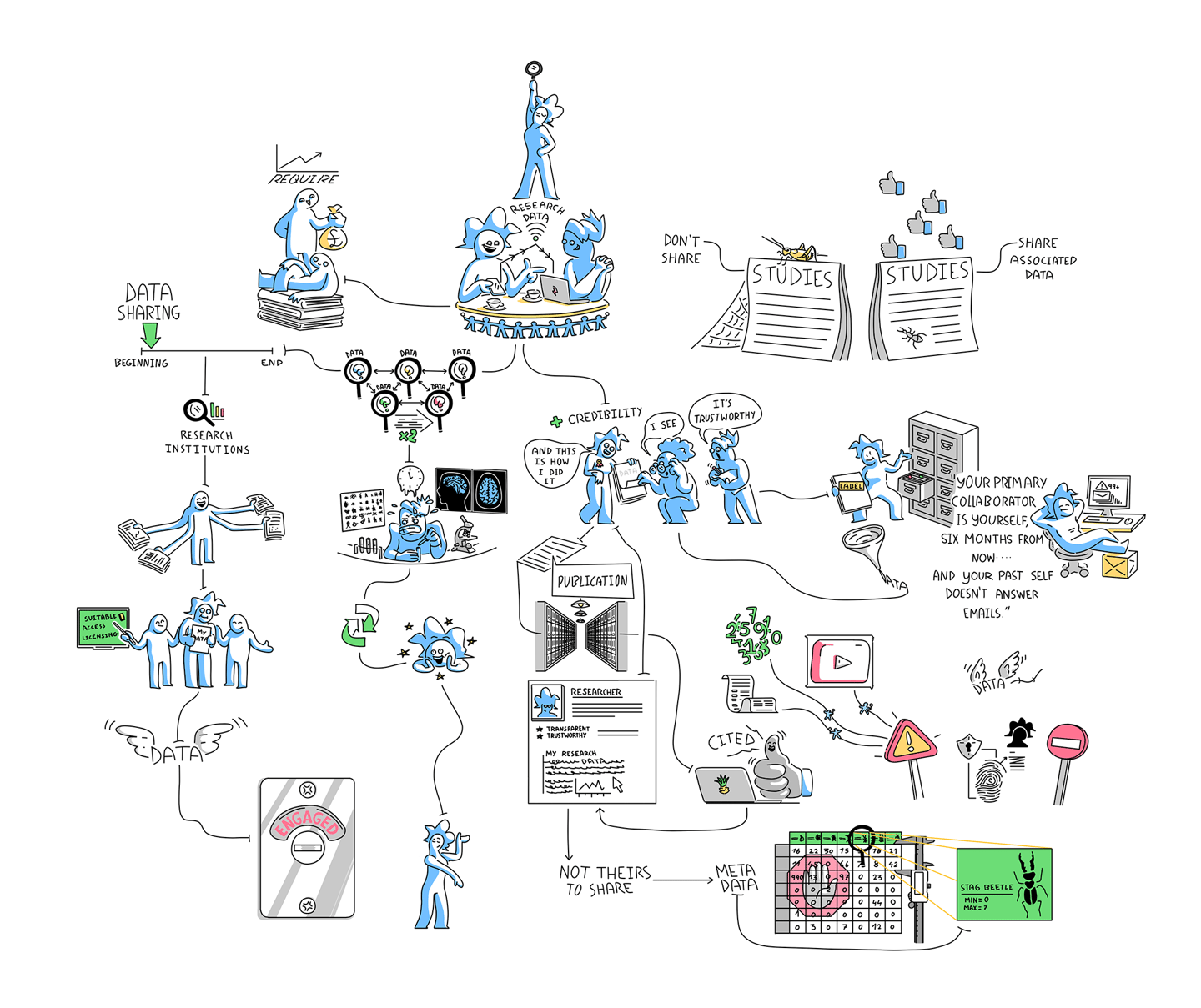

Exploring work-related stress in the construction industry
Researchers of the University of Bristol conducted a study exploring occupational stress within construction professionals employed by a large, UK-based international construction contracting company. The study focused on three main areas: the experiences of workplace stress, its management within the company and its perceived impact on health and wellbeing. This Infographic describes the main findings. You can read the scientific article in the journal International Journal of Workplace Health Management, here: https://www.emerald.com/insight/content/doi/10.1108/ijwhm-11-2021-0213/full/html
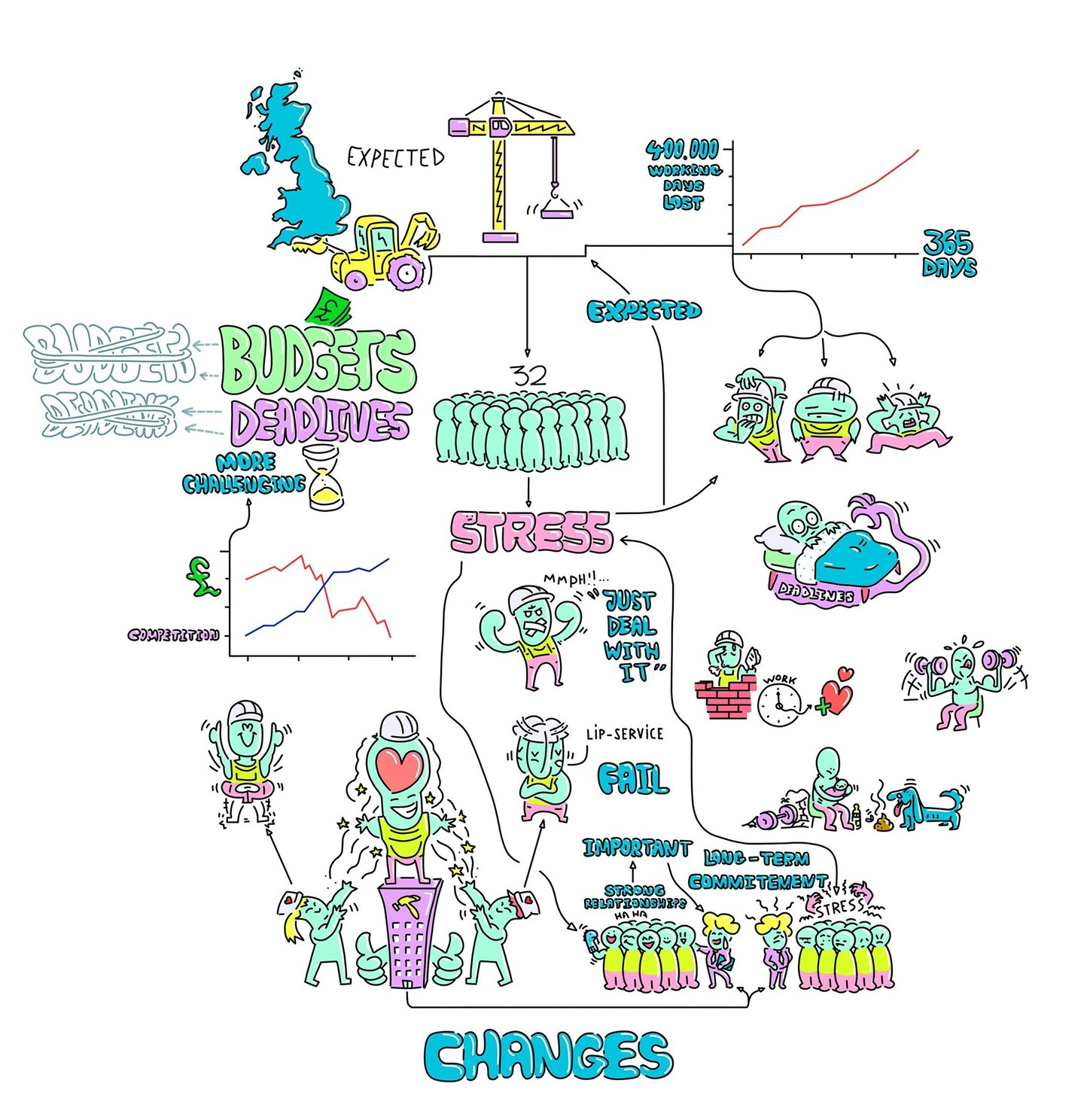

Smoking and mental health
This Infographic describes how smoking can harm your mental health through the tobacco withdrawal cycle, and how quitting smoking can offer mental health benefits.
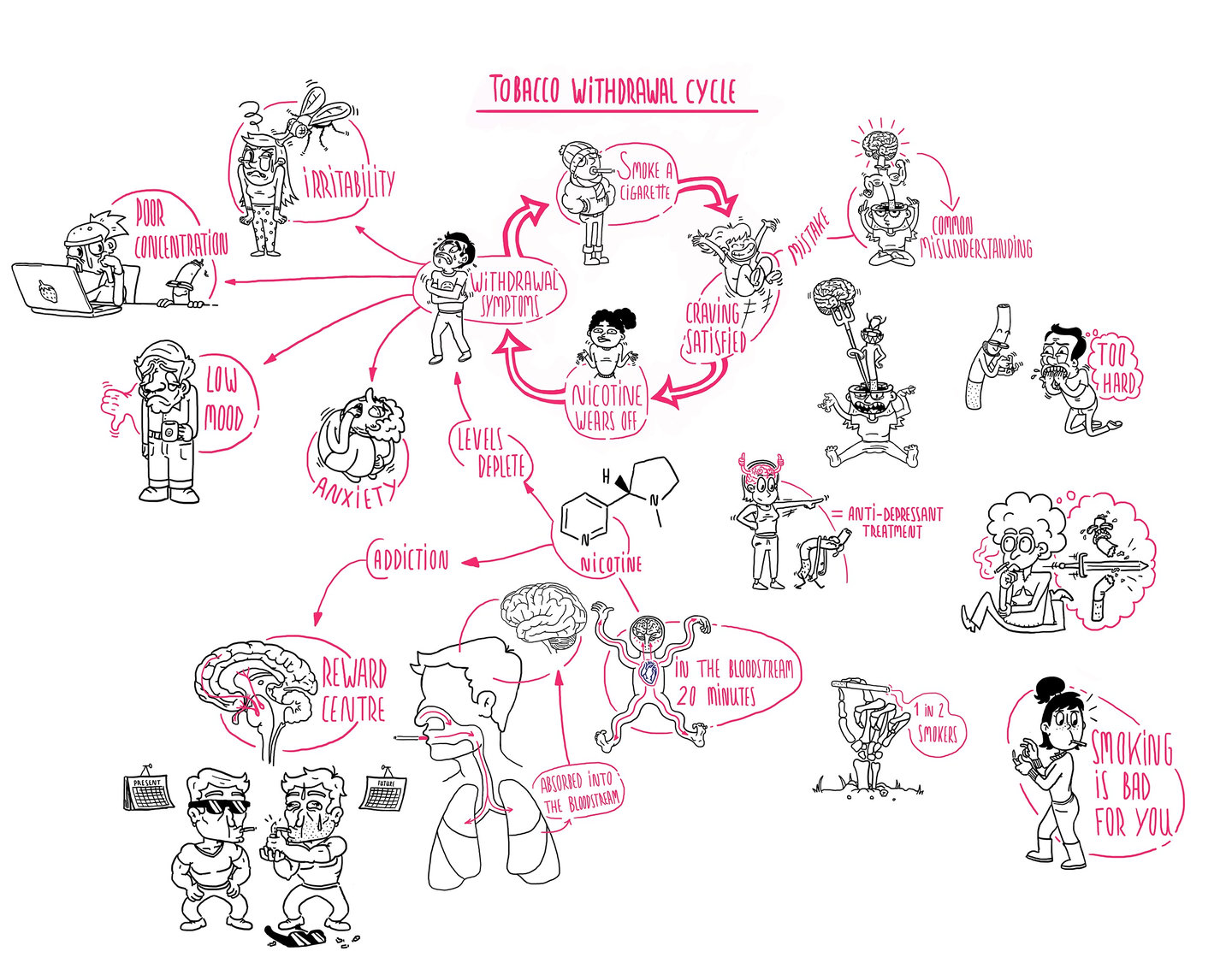

Enroll-HD
Enroll-HD is a study that aims to accelerate the development of therapies for Huntington's disease by collecting more uniform clinical data and biological samples to better understand the natural history of Huntington's.
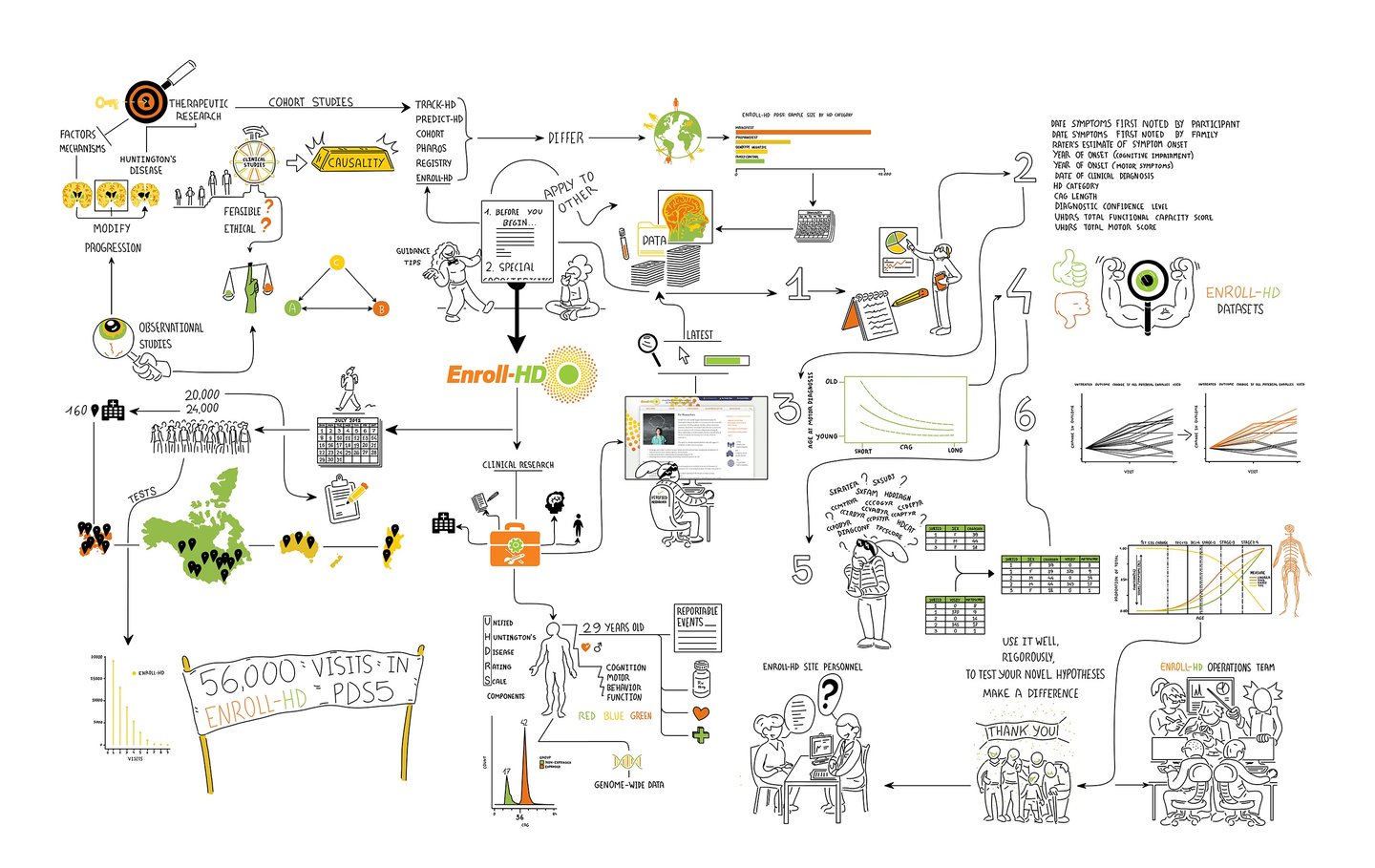

Chemistry Manufacturing and Controls (CMC)
Chemistry Manufacturing and Controls (CMC) ensures safe production of Active Pharmaceutical Ingredients (APIs) and their transformation into final Drug Products for patient use. This process involves collaboration across chemistry, analytical sciences, formulation, and global manufacturing to meet strict regulatory standards.


Integrating smoking cessation treatment into usual care for depression and anxiety: Using a cognitive behavioural approach to help people quit smoking
Integrating smoking cessation treatment into usual care for depression and anxiety: Using a cognitive behavioural approach to help people stop smoking.
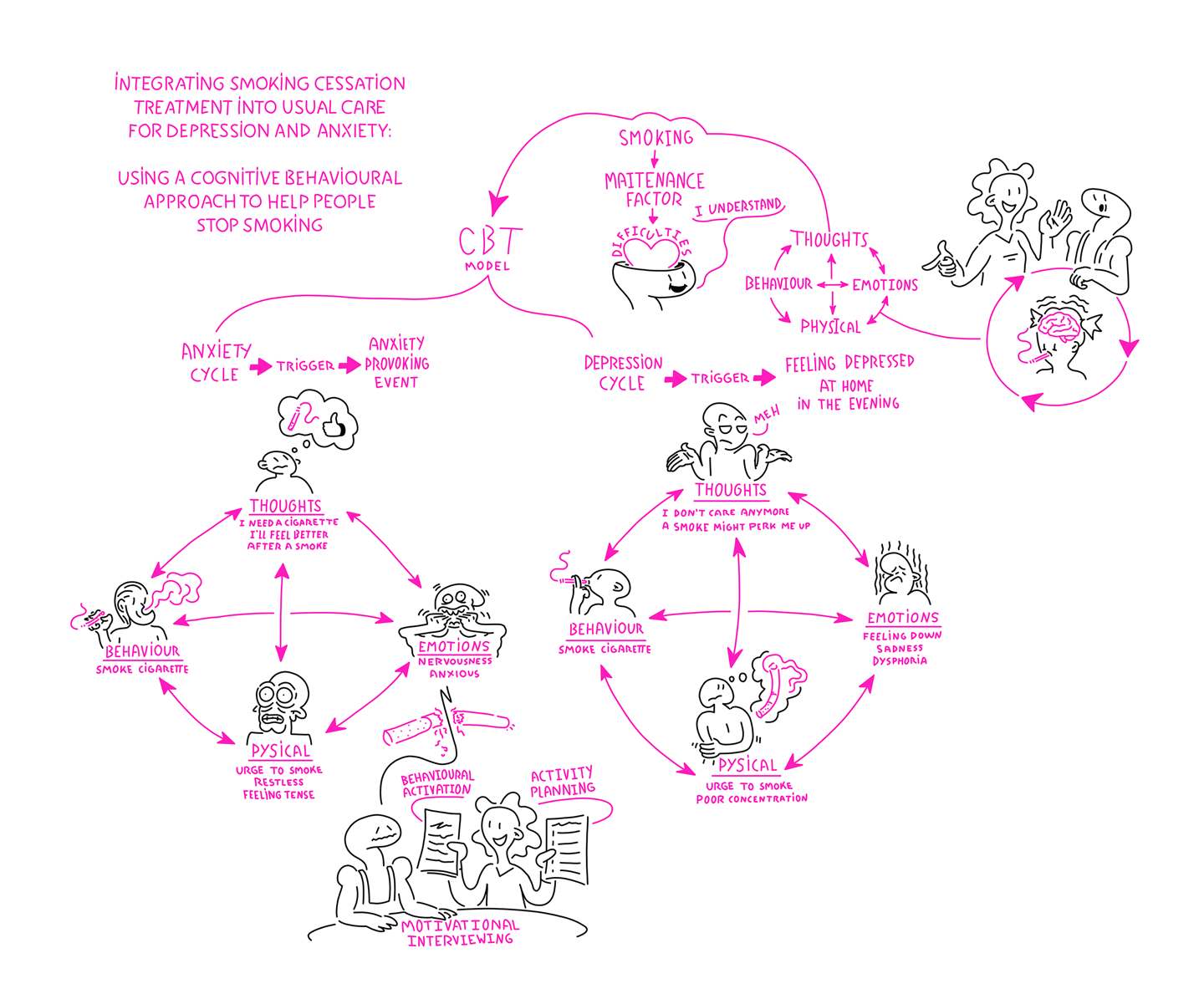

Integrative Nutritional Research
Infographic describing the way technology is changing the way we study how and what we eat and drink, and how this affects our health.


Can statins prevent ovarian cancer?
This Infographic summarises research findings suggesting that long-term use of statin medications could lower ovarian cancer risk. The research was carried out by a team of scientists in the Cancer Research UK Integrative Cancer Epidemiology Programme and led by Dr James Yarmolinsky.
